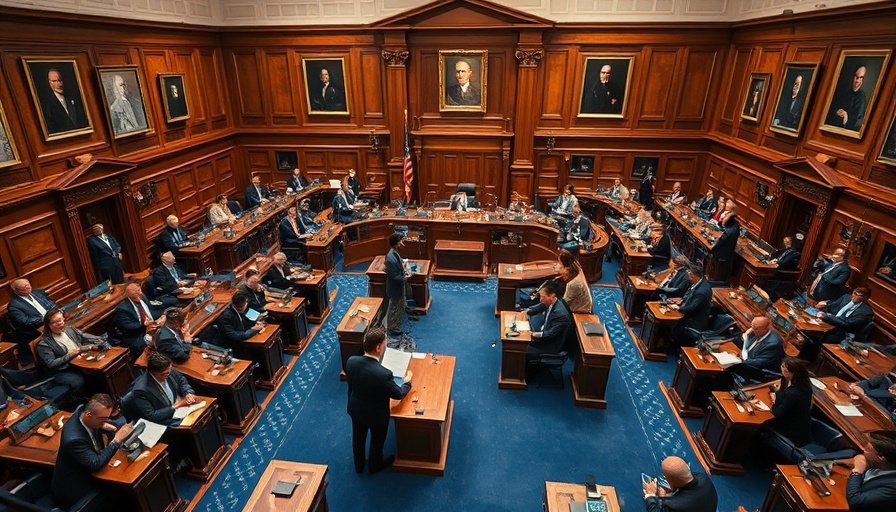
Florida's Proposal to Replace the Lt. Governor Sparks Controversy
In a significant political shift, Florida lawmakers are advancing a proposal that could reshape the state's governance structure. The plan seeks to eliminate the office of the lieutenant governor, replacing it with a new position: the Commissioner of Government Efficiency. Introduced by Rep. John Snyder and House Majority Leader Tyler Sirois, this measure has gained traction in the House, with a recent vote of 14-3 in favor of moving the constitutional amendment forward.
The New Role: What Would a Commissioner of Government Efficiency Do?
If approved, the commissioner would perform essential audits and investigations into fraud, waste, and abuse in both the executive branch and local governments. This consolidation of oversight aims to streamline operations and enhance accountability within government services. Snyder emphasizes that the current oversight is scattered among various agencies, which complicates efforts to hold officials accountable. By centralizing these responsibilities, the proposed role is intended to empower Floridians by ensuring their taxes are used efficiently.
Historical Context: How Did We Get Here?
The timing of this proposal coincides with a vacancy in the lieutenant governor's office, previously held by Jeanette Nunez, who resigned to take on a position as interim president at Florida International University. This vacancy has provided an opportune moment for lawmakers to reconsider the structure of the executive branch. The concept is not entirely new; state governance has experienced similar restructuring efforts in the past, demonstrating a willingness to adapt and refine political roles to better serve the public.
An Initiative Inspired by National Trends
The proposed Commissioner of Government Efficiency has roots in national conversations around government size and efficiency, particularly influenced by initiatives from former President Donald Trump and his administration's focus on enhancing operational efficiency. As noted by Sirois, this proposal reflects broader dialogues about minimizing government footprint while maximizing service quality. This context frames the amendment not just as a local issue but part of a national trend toward government reform.
Concerns and Criticisms from the Opposition
Despite the strong support for the measure, there are voices of dissent. Democratic representatives like Dotie Joseph have raised concerns about the sustainability and clarity of this new role. Joseph argues that without a thorough financial impact analysis, the proposal lacks substance and could potentially expand the government rather than streamline it. Her perspective underscores the necessity for transparent discussions about the potential costs and operational frameworks of the new office before any legislative action is taken.
Future Implications: What Lies Ahead?
Should the legislature approve the measure, it will go to a vote in the 2026 election, requiring 60% voter support to be enacted. If passed, voters would also reserve the option to revisit this decision in a referendum slated for 2044. This future-provision highlights the dynamic nature of governance in Florida as citizens retain the power to influence significant changes in their leadership structure. The outcome of this proposal could set a precedent for how states approach governance roles and efficiency in the coming years.
Conclusion: The Call for Civic Engagement
The potential transformation of the lieutenant governor’s office into a Commissioner of Government Efficiency presents both opportunities and challenges. Floridians are encouraged to engage with this issue, consider its implications, and voice their opinions in the upcoming election cycle. The future of governance in Florida could hinge on how effectively the state navigates these proposed changes, reinforcing the importance of each citizen's participation in the democratic process.
 Add Row
Add Row  Add
Add 



Write A Comment